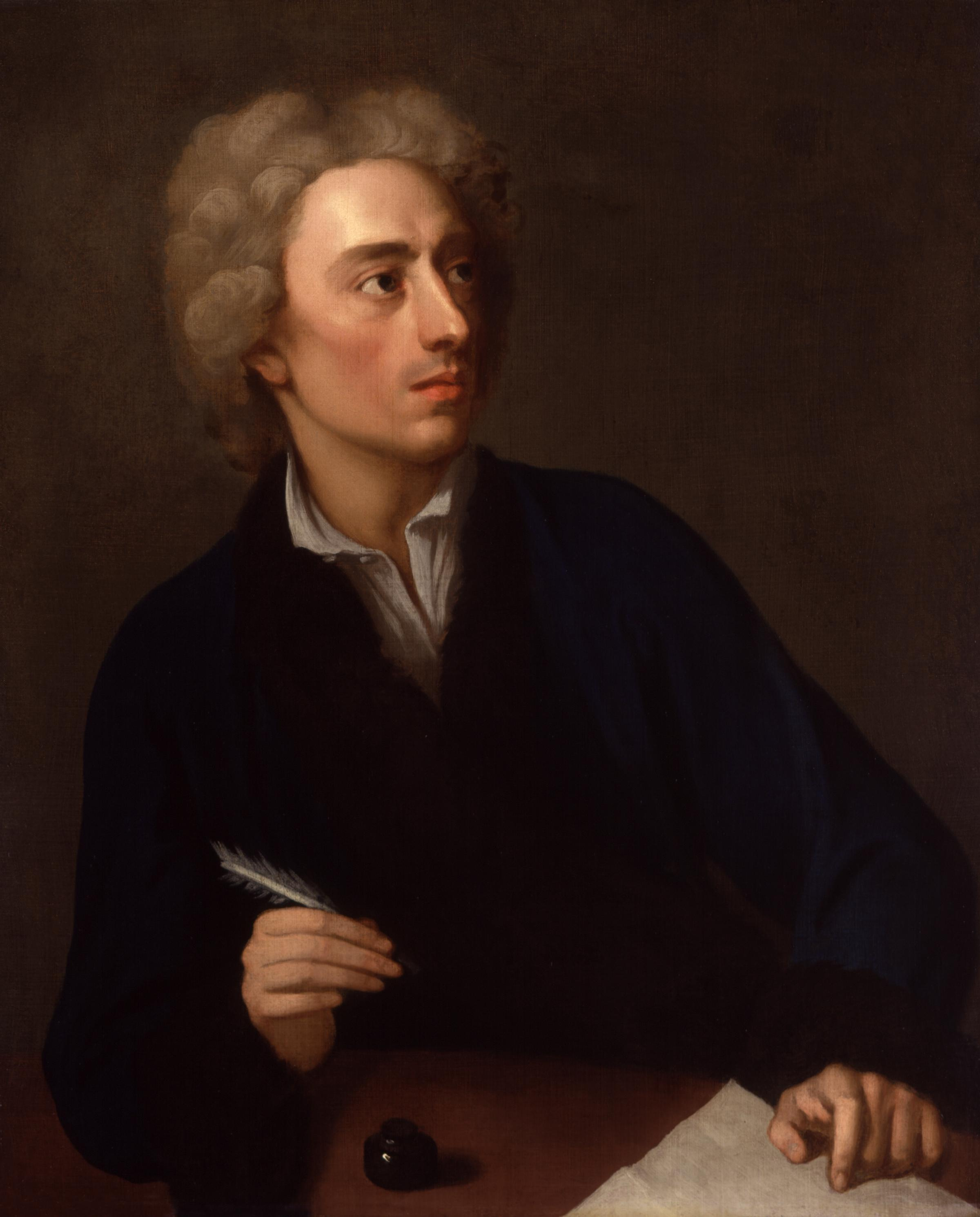Alexander Pope frasi celebri
“Errare è umano, perdonare è divino.”
da An Essay on Criticism, 1711, II parte, riga 325
Variante: Errare è umano, perdonare divino.
“Benedetto l'uomo che non si aspetta nulla, perché non resterà mai deluso.”
da Thoughts on Various Subjects
Frasi su Dio di Alexander Pope
Saggio sull'uomo
Origine: Citato in Andrew Linzey, Teologia animale, traduzione di Alessandro Arrigoni, Cosmopolis, Torino, 1998, p. 56. ISBN 978-88-87947-01-4
Alexander Pope Frasi e Citazioni
Variante: Com'è felice il destino dell'incolpevole vestale!
Dimentica del mondo, dal mondo dimenticata.
Infinita letizia della mente candida!
Accettata ogni preghiera e rinunciato a ogni desiderio.
da Thoughts on Various Subjects
da An Essay on Criticism, I, 574-5, citato in Per Difesa e Per Amore di Gian Luigi Beccaria, Garzanti, Milano 2006, pag. 35
“La natura è tutta un'arte a te sconosciuta.”
citato in Focus, n. 70, pag. 130
“Il caffè, che rende il politico saggio | e guarda a ogni cosa con gli occhi mezzi chiusi.”
da The Rape of the Lock, canto III, verso 117
Alexander Pope: Frasi in inglese
“Our judgments, like our watches, none
go just alike, yet each believes his own”
Origine: An Essay on Criticism
“True ease in writing comes from art, not chance,
As those move easiest who have learn'd to dance.”
Origine: An Essay on Criticism (1711)
“Death, only death, can break the lasting chain;
And here, ev'n then, shall my cold dust remain”
Origine: Eloisa to Abelard
Origine: Prologue to Mr. Addison's Cato (1713), Line 1.
“Nature and Nature's laws lay hid in night:
God said, "Let Newton be!"”
and all was light.
Epitaph intended for Sir Isaac Newton.
“The world forgetting, by the world forgot.
Eternal sunshine of the spotless mind!”
Origine: Eloisa to Abelard
“Histories are more full of Examples of the Fidelity of dogs than of Friends.”
Letter to Henry Cromwell (19 October 1709).
Origine: Letters of the Late Alexander Pope, Esq. to a Lady. Never Before Published
“And die of nothing but a rage to live”
Variante: You purchase pain with all that joy can give and die of nothing but a rage to live.
Origine: Moral Essays
“Men must be taught as if you taught them not,
And things unknown propos'd as things forgot.”
Origine: An Essay on Criticism
Origine: Epistles and Satires of Alexander Pope
“What dire offence from amorous causes springs,
What mighty contests rise from trivial things!”
Canto I, line 1.
Origine: The Rape of the Lock (1712, revised 1714 and 1717)
“chaos of thought and passion, all confus'd.”
Origine: An Essay on Man
Letter, written in collaboration with Henry St John, 1st Viscount Bolingbroke, to Jonathan Swift, December 14, 1725.
Reported in The Poems of Alexander Pope, ed. John Butt, sixth edition (Yale University Press, 1970), p. 832: "Verbatim from Boileau", written c. 1740, published 1741.. Compare: "Tenez voilà", dit-elle, "à chacun une écaille, Des sottises d'autrui nous vivons au Palais; Messieurs, l'huître étoit bonne. Adieu. Vivez en paix", Nicholas Boileau-Despreaux, Epître II. (à M. l'Abbé des Roches).
“Let spades be trumps! she said, and trumps they were.”
Canto III, line 46.
The Rape of the Lock (1712, revised 1714 and 1717)
“To be angry, is to revenge the fault of others upon ourselves.”
Thoughts on Various Subjects (1727)
“Love seldom haunts the breast where learning lies,
And Venus sets ere Mercury can rise.”
"The Wife of Bath her Prologue, from Chaucer" (c.1704, published 1713), line 369.
Thoughts on Various Subjects (1727)
“And bear about the mockery of woe
To midnight dances and the public show.”
Origine: The Works of Mr. Alexander Pope (1717), Elegy to the Memory of an Unfortunate Lady, Line 57.
“Each finding like a friend
Something to blame, and something to commend.”
"Epistle to Mr. Jervas" (1717), lines 21–22.
